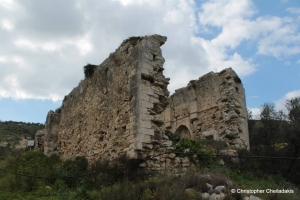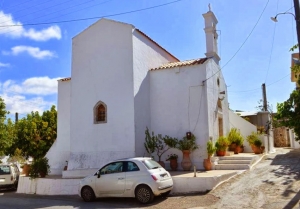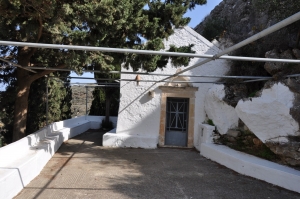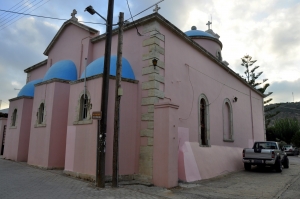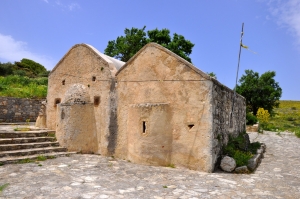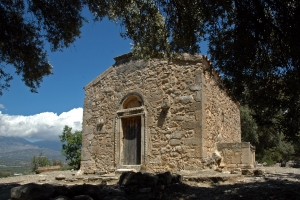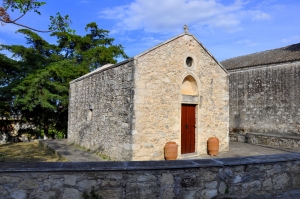Kaminos is a very fertile valley with thousands of olive trees belonging to three settlements: Skalani, Prassa and Kallithea. Kaminos was a Medieval settlement, today disappeared, that hosted three temples; the churches of Archangel Michael, the church of Christ and the church of Saint Demetrius.
At the village Evengelismos, also known as Muhtari, we meet the Church of the Annunciation of Virgin Mary, after which the village takes its name (Evangelismos means Annunciation). An inscription from ancient Lyktos is embedded in the outer wall of the temple, while the interior bears a few but excellent frescoes of the 14th century.
The end of the 19th century, the monk Georgios Kostantoulakis, also known locally as Moyses, took refuge in a secluded location near the village Vorrou, where he lived in a small cave. Over time he built the church of Agia Kyriaki, a cell and some auxiliary rooms. According to the inscription we see even today over the church door, the temple was built in 1901.
At the village Kounavi there is a three aisled Byzantine church dedicated to the Transfiguration of Christ, Saint Nicholas and Saint Demetrius, which is the main church of the village. This temple is unique as it has five domes, one large in the center and four smaller around it. According to tradition it was built by five unmarried sisters.
Next to the village Galatas and very close to the Minoan Palace, at position Drakonero, we meet the two-aisled church of St. John. The church of the Byzantine Era bears frescoes in very poor condition, while inside there is an arcosolium (tomb monument) probably for the founder. Below the church there is a well with fresh water.
The two-aisled church of St. John and the Virgin Mary at Mathia is the result of adding a second aisle (of the Assumption) in the 19th century to the existing single-aisled church of St. John. The nave of St. John bears frescoes from the 14th century with scenes from the Mariology and the Christological cycle. There are also murals of sinners.
Saint Anthony is located at the western end of Avdou and is a small single-nave vaulted church built in the 13th - 14th century. The church bears frescoes of Emmanuel and Ioannis Fokas. It is the only case in Crete of bicolored frescoes. The painters used only the reddish - brown and blue - lilac colors.





